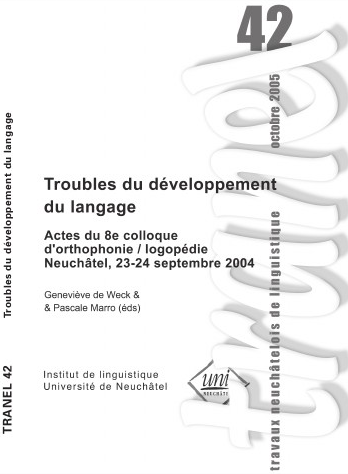Comment étudier les capacités pragmatiques des enfants en situation de compréhension du langage?
DOI :
https://doi.org/10.26034/tranel.2005.2623Résumé
During the first five years of his/her life, a child progressively acquires the different structures of his/her mother tongue. Nevertheless the child will not speak like an adult nor like a 12 year-old: he/she does not yet master the language, that is to say, the variation of linguistic features according to communication situations (for example, adapting his/her language to different speakers).Therefore, after the age of 5, children progressively acquire more and more subtle pragmatic abilities. The aim of this chapter is to present a new piece of software aimed at studying these pragmatic abilities in situations of language understanding. In particular, it will study children’s pragmatic abilities when the language used is uncertain. In other words, when there is a difference between what is said and what is actually meant. This software has the advantage of studying understanding while preserving the natural conditions of the communication situations and respecting the methodological constraints linked to the scientific study of language.Téléchargements
Publié-e
01-10-2005
Comment citer
Laval, V., & Chaminaud, S. (2005). Comment étudier les capacités pragmatiques des enfants en situation de compréhension du langage?. Travaux neuchâtelois De Linguistique, (42), 65–79. https://doi.org/10.26034/tranel.2005.2623
Numéro
Rubrique
Article thématique


